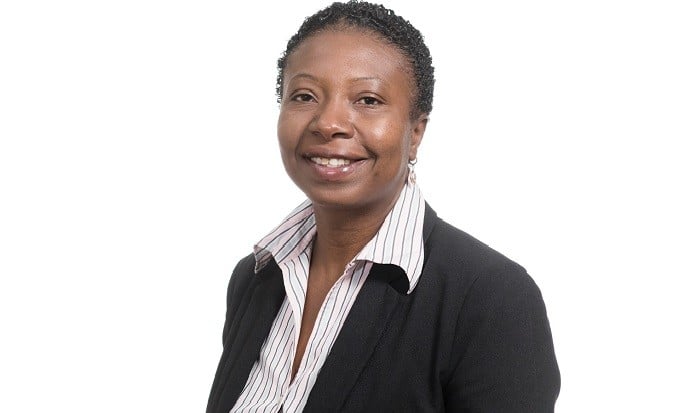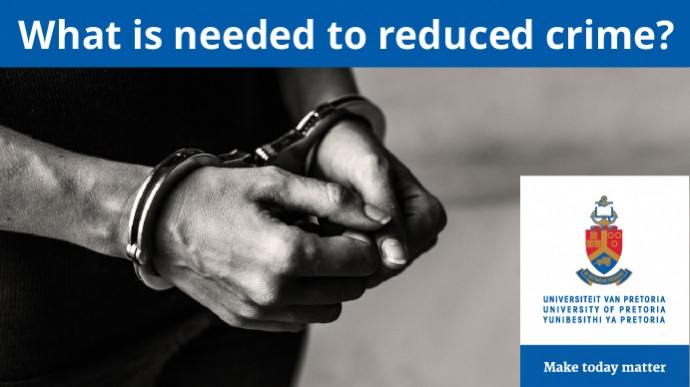
Dr Mary Mangai studied Economic Development and Policy Analysis at the University of Nottingham in the UK at master’s level and completed her PhD in Management Sciences (Public Administration) at Radboud University in Nijmegen, the Netherlands.
She joined the University of Pretoria (UP) in March 2018 as a postdoctoral fellow, and she is now a permanent staff member at the School of Public Management and Administration.
“The University has an appreciable research environment that helps to catalyse my drive for research,” Dr Mangai says. She adds that UP encourages community engagement and has a good platform for dissemination of her research output.
Her research on crime prevention co-production in South Africa and Germany has the potential to contribute to the betterment of the world in more than one way, she says. By identifying and comparing effective strategies for crime prevention in Johannesburg and Duisburg in Germany, Dr Mangai’s research can inform and guide policy decisions and practices in other regions and countries that are facing similar challenges. It can also promote knowledge sharing and collaboration among different regions and countries.
Additionally, her research can help to highlight the importance of co-production and multi-stakeholder involvement in crime prevention efforts, which can lead to more effective and sustainable solutions.
Essentially, the findings and insights from this research can be used to inform and guide crime prevention efforts at local, national and even international level, with the goal of creating safer, more secure environments and communities for all, as envisaged by Sustainable Development Goal (SDG) 17.
Dr Mangai is the lead researcher in the research project on crime prevention co-production in South Africa and Germany. After securing funding for the project from South Africa’s National Research Foundation and the German Research Foundation, she invited a few colleagues and her honours students from the School of Public Management and Administration to join her in the collection of data and analysis. This has led to several articles being published, and some that are soon to be published, in reputable international journals.
The counterpart funding of this research in Germany saw Dr Mangai going on a three-month visit to Germany to conduct field research in crime prevention co-production. She worked with Professor Tobias Debiel at the Institute for Development and Peace at the University of Duisburg to collect data in different German cities. They produced a manuscript entitled ‘An analysis of crime prevention co-production in Germany’, which will soon be published.
“It was innovative and explorative to see how crime prevention is addressed in different fields and contexts,” Dr Mangai says.
She mentions several recent highlights of her research work:
Overall, the research project has the potential to contribute to the development of more effective and collaborative crime prevention strategies in both South Africa and Germany. Additionally, the focus on co-production as a theoretical framework for crime prevention is important, as it emphasises the collaboration and involvement of various stakeholders in crime prevention efforts beyond law enforcement agencies. This research can contribute to the development of effective and comprehensive crime prevention strategies that take into account the contextual differences and involve various stakeholders in the process.
A specific event inspired her research. She relates how the conceptualisation of her project was inspired by a viral video she saw on Google News.
“I saw a high school boy being robbed in broad daylight at a busy intersection in Johannesburg. People were passing by while the robbery was taking place. That caught my attention: I asked myself how this societal problem could happen in such a place and time; why people were going about their business without bother; how society could have degenerated to such a level; and what could be done to ameliorate such challenges.
Dr Mangai has begun a new project entitled ‘Co-creating knowledge in violence and crime prevention in Gauteng and the Western Cape’ with Dr Jan L Wilhelm of the University of Potsdam in Germany.
She has two academic role models: Prof Margaret Chitiga-Mabugu, Dean of UP’s Faculty of Economic and Management Sciences, and her PhD supervisor, Prof Michel de Vries of Radboud University.
“Prof Mabugu’s career pursuit is worth emulating” Dr Mangai says. “She has inspired me to be my best, and encouraged me to take on roles that shaped my career journey. Prof De Vries gave his all to make me what I am today. He was a supervisor and is now a mentor. He helped me to network with academic bigwigs in the field of public administration and management globally. He regularly checks in on me to see how I am doing, even after five years after I obtained my PhD.”
Her advice to school learners or undergraduates who are interested in her field is to develop a strong foundation in the social sciences, in subjects such as public administration, political science, sociology, psychology, economics, criminology and law.
“These subjects will provide an understanding of the complex social dynamics that underpin governance, criminal behaviour, rationality, social cohesion and social change,” Dr Mangai says. “Also, develop critical-thinking skills. A critical mind is essential in the field of public administration and management. Students in this field should be able to analyse and evaluate data and research critically, and logically dissect policies and government programmes.”
She adds the following advice:
Bottom of Form
In her free time, Dr Mangai likes travelling, action research, mentoring and cooking.
“Meeting people and exploring different cultures have made me see the world differently and from a broader perspective. Action research seeks transformative change through the simultaneous process of taking action and doing research, which are linked by critical reflection.”
She likes mentoring young people because she considers herself to have achieved this much due to mentorship.
As for cooking she says: “As a seasoned academic, I am fascinated by the fact that I like cooking. Perhaps it’s the craving for proper meals and the love of family that have resulted in me favouring cooking!”
 Story
Story
Research by the University of Pretoria (UP) has demonstrated the importance of community policing forums in fighting crime in high-risk environments, such as in Johannesburg.
 Infographic
Infographic
Research done by experts at the University of Pretoria shows that community policing addresses one of South Africa’s most pressing societal concerns: the security and safety of lives and properties.
Copyright © University of Pretoria 2025. All rights reserved.
Get Social With Us
Download the UP Mobile App